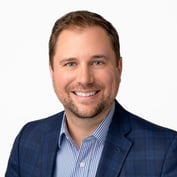What You Need to Know
- Releasing shame around financial mistakes should be the first planning step, Tiffany Aliche says.
Along with offering retirement, estate and tax planning, financial advisors may provide the best service with an element that doesn’t appear on spreadsheets or software platforms: the personal understanding that enables clients to share their humiliating money mistakes.
Tiffany “the Budgetnista” Aliche, a podcaster, educator and blogger who wrote the New York Times bestseller “Get Good with Money: 10 Simple Steps to Becoming Financially Whole,” recently discussed shame arising from money errors on the Morningstar podcast “The LongView,” hosted by Christine Benz and Jeff Ptak.
“You know that your clients come to you riddled with shame. And you know that shame shields solutions. It is very hard to open that bank account, start paying down debt, start budgeting, if you can’t even open up the envelopes that are coming in the mail — the pink and the red ones to say you’re late or you’re behind,” she said.
Aliche, who Benz said has helped more than 2 million women manage their finances — women of color are her core audience — referenced her own financial missteps, which she also addresses in her new book, “Made Whole.”
After a solid track record with money based on instructions from her parents and being the go-to financial expert for her friends, she decided in her 20s to make financial decisions on her own “and promptly destroyed all of the things that my parents helped me build. I got into credit card debt. I was a victim of credit card scam.”
The experience humbled Aliche and also gave her empathy as a teacher, since she knew for the first time how it felt to not have enough money and wonder how she’d pay her bills, she explained. At first, though, shame hobbled her.
“After I made all these financial mistakes, I didn’t want to tell my parents, I didn’t want to tell my friends. And so, the shame kept me in the mistake longer than I needed to be,” she said, according to a podcast transcript.
“I think so many financial professionals forget that you need to tackle that first. You have to create a safe space so that way the person that you’re serving can share and release some of that shame, so then you start to interject solutions,” said Aliche, who compared this need to a doctor trying to determine what’s wrong before treating a patient.








 November 29, 2023 at 02:44 PM
November 29, 2023 at 02:44 PM












 Copyright © 2024 ALM Global, LLC. All Rights Reserved.
Copyright © 2024 ALM Global, LLC. All Rights Reserved.